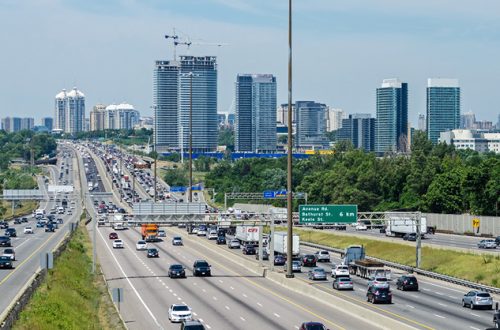
William Peyton Hubbard’s legacies are diverse and many. Known famously in the fields of baking, engineering, and politics, Hubbard’s life, though challenging at times, was marked by progress, strength, and kindness.
Born in 1842, Hubbard was the second of nine children born to Mosely and Lavenia Hubbard. Before having children, the pair were slaves in Virginia working on a plantation. They fled in the 1830s using the underground railroad.
They made the long and dangerous trek to settle in Toronto, ON where Hubbard was born in a cabin at modern-day Bathurst St. and Bloor St.
Toronto is now one of the most multicultural cities in the world, but when the Hubbards arrived, while there were no harsh segregation laws, there were still barriers to accessing housing and finding gainful employment for Black people.
Mosely Hubbard worked a few jobs to earn the money to send his son to Toronto’s Model School in central Toronto where he trained to become a baker. William Hubbard worked evenings and weekends in addition to afford books and other additional expenses.
The Hubbard Portable Oven
In 1861 Hubbard graduated from his apprenticeship and became a baker specializing in cakes. It was while he was working that he invented the Hubbard Portable Oven, an oven that was much smaller than the brick ovens at the time and was useful for industrial kitchens that needed multiple ovens, like hotel kitchens for example.
His brothers later took his idea and started selling them with great success.

Driven to Politics
After 16 years working as a baker, Hubbard began driving horse-drawn cabs for his uncle’s livery stable.
A notable newspaper publisher and politician, George Brown (who now has a Toronto college in his name) used this service and often complained about drunk cab drivers. So, Hubbard offered to be George Brown’s driver. Over time spent getting to know each other during their rides the two became friends and Brown encouraged Hubbard to get into local politics.
Hubbard’s Political Career
In 1893 Hubbard ran for Toronto City Council at the age of 51. He lost by seven votes. Though it was a loss, Hubbard was struck by just how close he got and ran again the following year. This time, winning the election and becoming the first Black person/person of colour to win an election in Toronto. He would represent one of the wealthiest and whitest Toronto neighbourhoods between University and Bathurst and go on to be elected to the Toronto City Council 15 times. Hubbard contributed to the passing of almost 100 municipal proposals, served as Justice of the Peace in York County, and served on the board of the Toronto House of Industry where he worked to alleviate poverty in the city.
Toronto’s Hydro-Electric System
In the early 1900s, a major issue of the day was electricity. Many people in Toronto could not afford to have electricity in their homes. William Hubbard alongside Adam Beck advocated for a public electricity grid and established the provincial Hydro-Electric Power Commission, which is now referred to as Hydro One.
This ensured that Torontonians had access to affordable power, even though it came as a major disappointment to businessmen who were interested in privatizing access to electricity.
The same issues of making energy accessible continue to be important to Canadians today.

The William Peyton Hubbard Memorial Award
Hubbard worked closely with Adam Beck, known as the Father of Ontario Hydro. In honour of Hubbard’s allyship with Beck and his dedication to implementing a public electricity grid, Hydro One introduced an award in his name.
The annual award goes to two Black students studying energy industry related disciplines at a recognized Ontario university or community college. The award consists of $5.000 and a guaranteed offer of employment for a work term or summer internship at Hydro One.
At OSPE, we recognize the importance of uplifting Black students so they can reach their full potential and add to the much-needed diversity of perspectives in engineering.
We also encourage more engineers to run for public office. Professional engineers can use their problem-solving skills, technical knowledge, and budgeting know-how to help make well-informed decisions that create long-term positive change for the public and the engineering community.




Leave a Comment